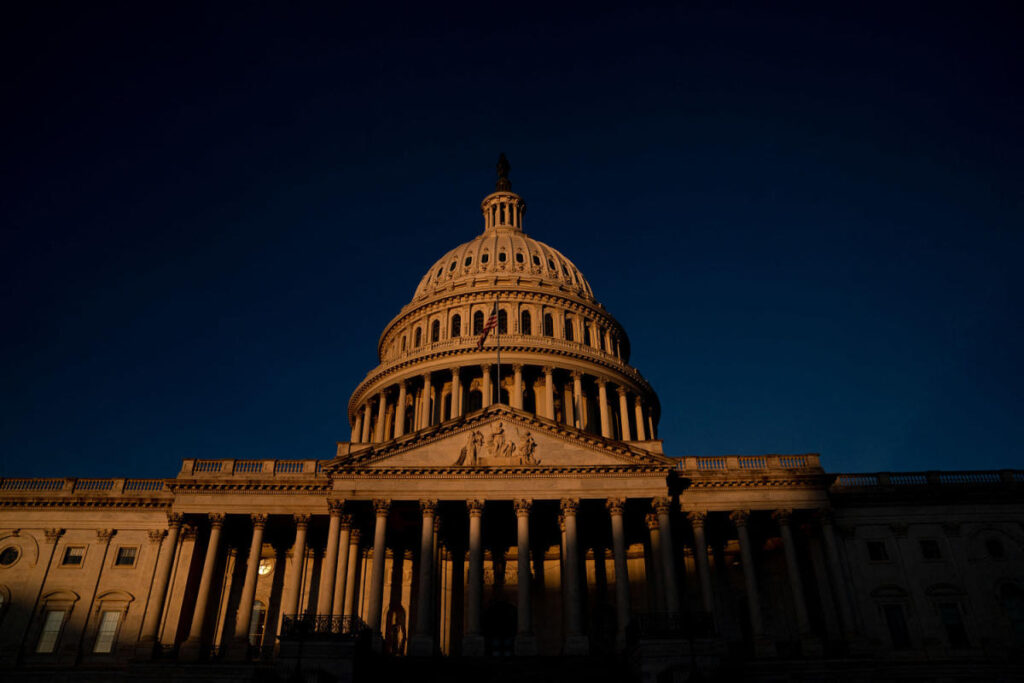As the U.S. government gears up for a potential shutdown this weekend, congressional leaders are scrambling to find a solution before funding runs out at 12:01 a.m. on Saturday. The shutdown situation follows the rejection of a spending bill that was initially proposed to maintain federal operations. Influential figures such as billionaire Elon Musk and President-elect Donald Trump have significantly impacted the development and acceptance of funding measures, forcing congressional Republicans to reevaluate their strategies. As negotiations proceed in Congress, the implications of a shutdown loom large over government functions and the salaries of millions of federal employees.
A government shutdown occurs when Congress fails to pass legislation that funds federal operations, underlined by the Constitution’s assignment of spending authority to Congress. Each year, Congress must enact spending bills by October 1, which marks the start of the new fiscal year. In instances where Congress cannot finalize these bills, it can utilize a continuing resolution to keep the government operational for a limited duration. Recently, a temporary funding extension was approved to extend operations until December 20, initiating a new round of budget negotiations that have devolved into chaos.
The current predicament stems from a mismanaged government spending process characterized by a complicated and often gridlocked political environment. Traditionally, appropriations committees in both the House and Senate are expected to craft and vote on a dozen spending bills covering various federal agencies. However, Congress frequently falls short of these expectations. The latest efforts resulted in a short-term extension that was supposed to offer stability—but internal disagreements, exacerbated by external pressures, have left lawmakers scrambling to devise a viable plan before the deadline looms.
As the clock ticks down to the potential shutdown, the consequences would not be immediate but would set off significant disruptions come Monday. Political analysts suggest that the impasse may prolong a shutdown due to ongoing divisions in Congress, especially with Republicans maintaining a narrow majority in the House and Democrats controlling the Senate. Additionally, such a stalemate creates anxiety about upcoming holidays, further complicating negotiations amid a turbulent political landscape. Parsing the sentiments within the Republican party reveals a willingness among some members to support a shutdown as a negotiating tactic, thus straining bipartisan collaboration.
In the event of a shutdown, federal operations would be severely limited, with many government employees, including military personnel, facing furloughs. Historical precedents indicate that hundreds of thousands of government workers might be impacted, reminiscent of the 850,000 furloughed during a previous shutdown in 2013. Essential services related to public safety, such as TSA operations, would remain functional, though many workers supporting these operations would go unpaid, as retroactive compensation is contingent upon the government reopening. Essential military operations and some medical services would also continue, ensuring that critical national security interests remain intact.
Amid the uncertainty, mandatory social welfare benefits such as Social Security and Medicare payments would proceed, unaffected by the disruptions caused by a shutdown. These critical payments cater to millions of Americans and are regarded as essential expenses that do not rely on annual appropriations, contrasting with discretionary spending that often breeds conflict. Looking back at past shutdowns, the record was set from December 21, 2018, to January 25, 2019, which lasted for an unprecedented 34 days and resulted in significant fallout across various sectors. A renewed shutdown could mirror such impacts, further adding strain to federal operations just as the holiday season approaches. This unfolding situation captures the complexity of governance and the necessity for timely bipartisan cooperation to avert significant disruptions in government service.

